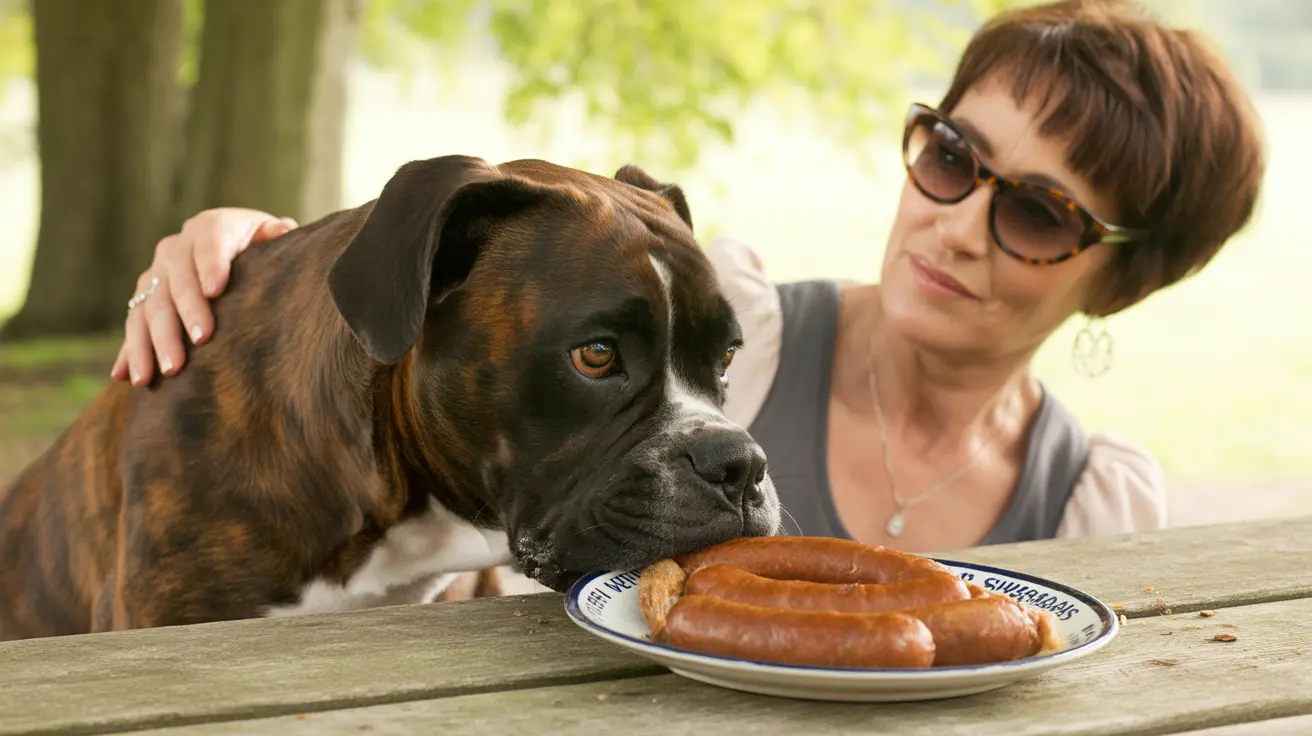Understanding the Dangers of Vienna Sausages for Dogs
As pet owners, we often want to share our food with our furry friends. However, when it comes to Vienna sausages, veterinarians strongly advise against feeding these processed meat products to dogs. While they might seem like a tasty treat, these small sausages can pose serious health risks to your canine companion.
In this comprehensive guide, we'll explore why Vienna sausages are potentially dangerous for dogs, what specific risks they pose, and what safer alternatives you can offer instead.
Harmful Ingredients in Vienna Sausages
Vienna sausages contain several ingredients that can be toxic or harmful to dogs:
- Garlic and onion powder (toxic to dogs)
- High sodium content
- Artificial preservatives
- Nitrates and nitrites
- Excessive fats
- Artificial flavors and seasonings
The presence of allium family ingredients (garlic and onion) is particularly concerning, as these can cause severe anemia in dogs even in small amounts.
Health Risks and Complications
Immediate Health Concerns
When dogs consume Vienna sausages, they may experience several immediate health issues:
- Vomiting and diarrhea
- Abdominal pain and discomfort
- Excessive thirst due to high sodium
- Lethargy or weakness
- Bloating and gas
Long-term Health Risks
Regular consumption of Vienna sausages can lead to serious chronic conditions:
- Pancreatitis from high fat content
- Obesity and weight management issues
- Kidney problems due to excess sodium
- Hemolytic anemia from allium toxicity
- Heart disease and high blood pressure
Safe Alternatives to Vienna Sausages
Instead of Vienna sausages, consider these healthy options for your dog:
- Plain, cooked chicken breast
- Lean ground turkey
- Small pieces of lean beef
- Fresh or frozen green beans
- Carrots as low-calorie treats
- Commercial dog treats formulated for canine health
When to Contact Your Veterinarian
If your dog has consumed Vienna sausages, monitor them closely for these warning signs:
- Persistent vomiting or diarrhea
- Pale gums or tongue
- Unusual lethargy or weakness
- Loss of appetite
- Excessive panting or difficulty breathing
- Abdominal pain or swelling
Frequently Asked Questions
Can dogs safely eat Vienna sausages or are they harmful?
No, dogs should not eat Vienna sausages. They contain harmful ingredients like onion and garlic powder, excessive sodium, and preservatives that can be toxic to dogs.
What health risks do Vienna sausages pose to dogs if consumed?
Vienna sausages can cause immediate digestive issues, pancreatitis, sodium poisoning, and hemolytic anemia. Long-term consumption can lead to obesity, kidney problems, and heart disease.
Which ingredients in Vienna sausages are toxic to dogs?
The most toxic ingredients are onion and garlic powder, which can cause anemia. Other harmful components include high sodium levels, nitrates, artificial preservatives, and excessive fats.
What symptoms indicate my dog is having a bad reaction after eating Vienna sausages?
Watch for vomiting, diarrhea, lethargy, pale gums, excessive thirst, abdominal pain, and difficulty breathing. These symptoms require immediate veterinary attention.
What are safer meat alternatives I can feed my dog instead of Vienna sausages?
Safe alternatives include plain cooked chicken breast, lean ground turkey, small pieces of lean beef, and commercial dog treats specifically formulated for canine nutrition.
Conclusion
While Vienna sausages might seem like a convenient treat, they pose significant health risks to dogs. The combination of toxic ingredients, high sodium, and excessive fats makes them unsafe for canine consumption. Instead, stick to dog-specific treats or plain, unseasoned meats to keep your furry friend healthy and happy.






